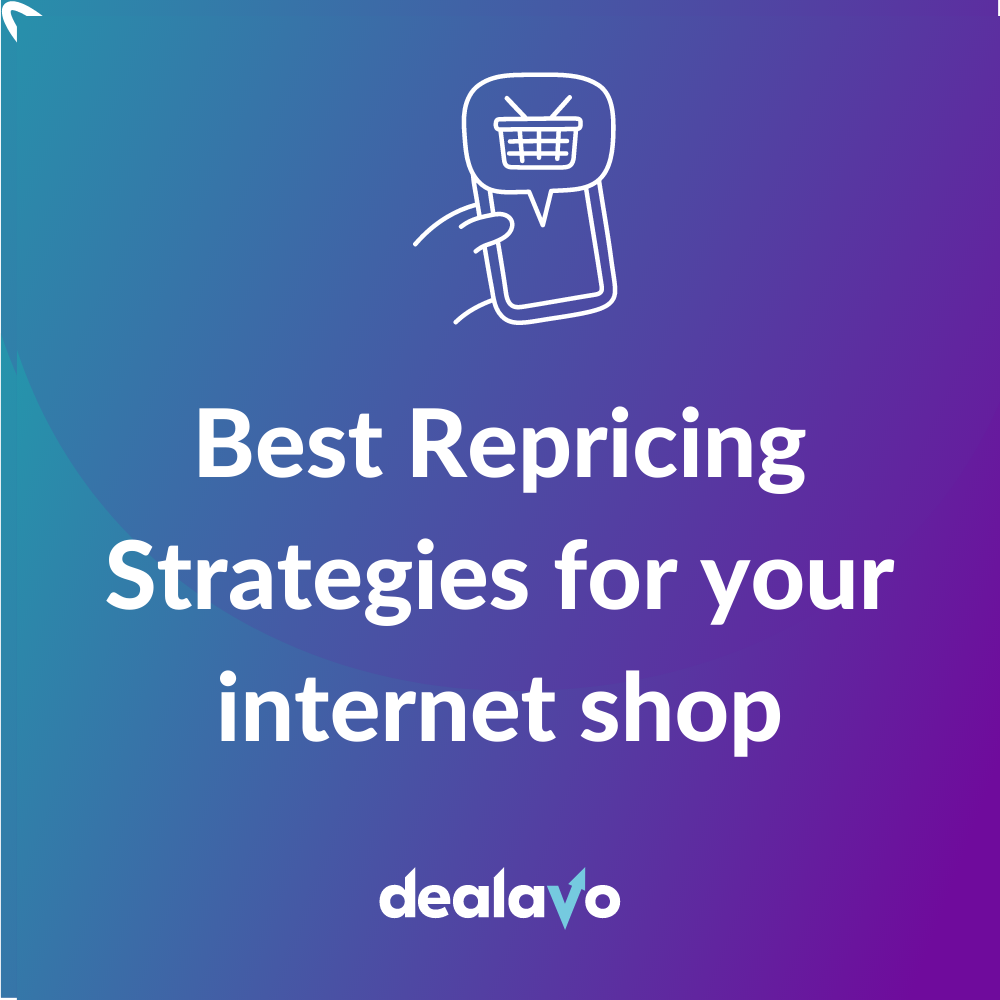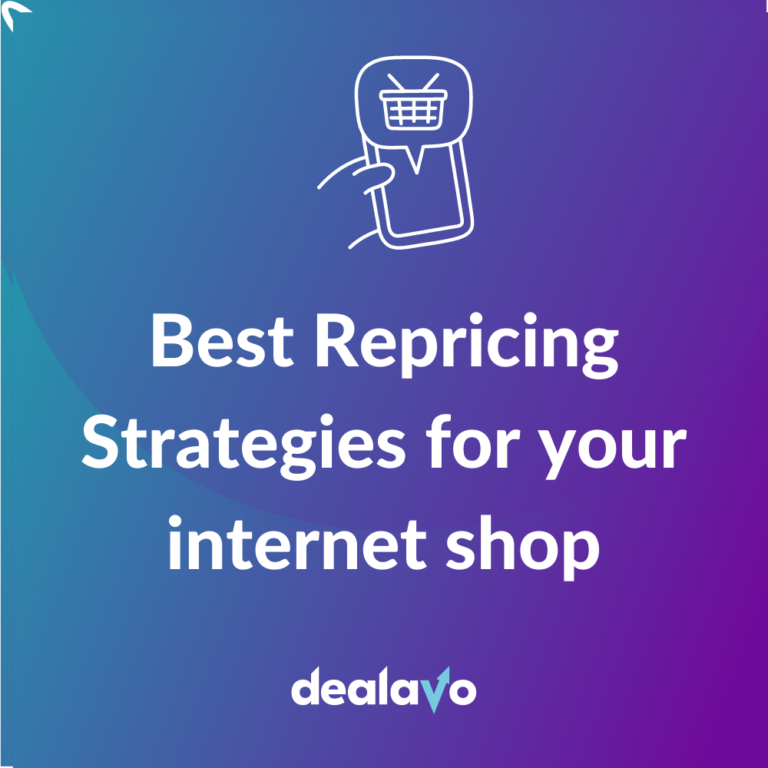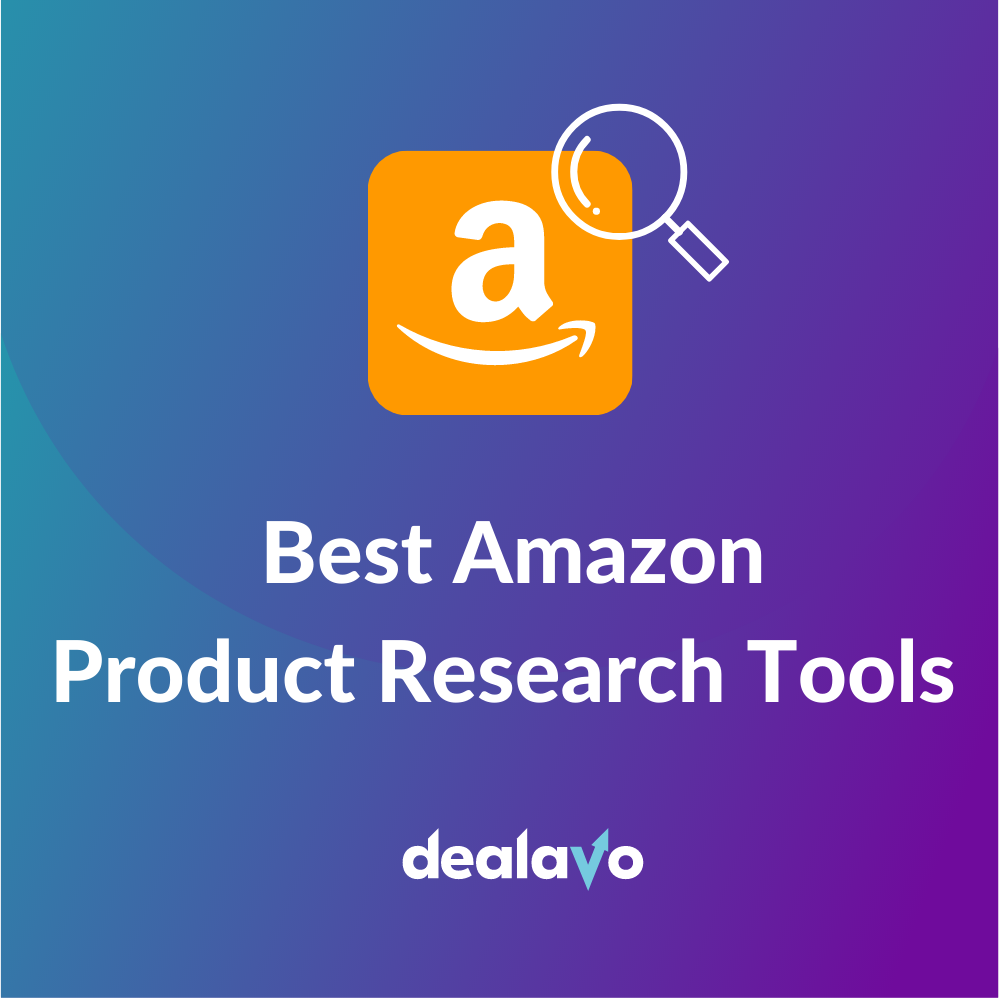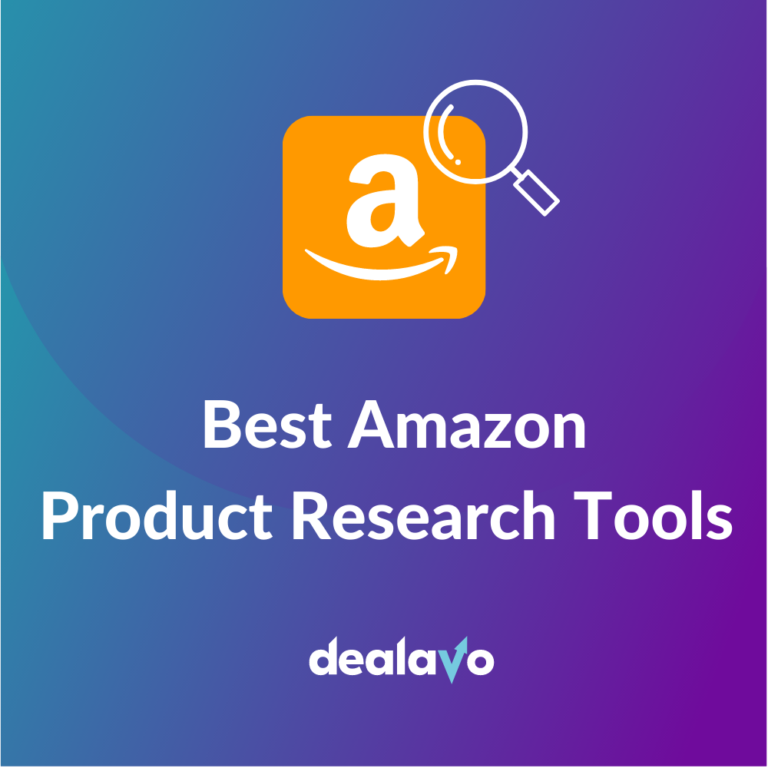The Ultimate Toolkit: Unveiling the Best Outsourcing Tools for E-commerce Businesses
- 21 June 2023
If you are running an online store, you can outsource almost anything – from an e-commerce platform to warehouse management. However, it is crucial to select tools that check all your boxes, are functional, and reasonably priced. In this post, we want to show you several worthy e-commerce outsourcing tools that will help you take your business to the next level.
Generally speaking, you should outsource everything that takes a lot of time or can be automated. That’s what these tools are for – to make your everyday work streamlined, faster, and more effective. However, since the selection of available e-commerce tools is so broad, you need to pick the right ones. How can you ensure that you’re picking the right tool? The best way is to start with a free demo or a free trial period. This is something we offer here at Dealavo as well.
With this short introduction done, let’s have a look at what you can outsource in your online store.
E-commerce platforms
Creating a new e-commerce platform from scratch is rarely profitable. For small and medium-sized stores, e-commerce platforms available on the market are more than enough. Here, you have two major options:
SAAS PLATFORMS
They are hosted on the given platform owners’ servers. Thanks to this solution, as a part of your monthly subscription, you get access to everything you need to showcase and sell your products online. Many platforms will enable you to get a domain and integrate your platform with it.
With SaaS tools, you don’t need to buy expensive software or download any files to your computer. Everything works in the cloud. The SaaS platform can be installed on your domain just as it happens with WordPress or any other CMS. These platforms are designed to be easy to use and user-friendly, so you can manage your whole store even if you’re not proficient with coding.
Examples of e-commerce SaaS platforms: PrestaShop, Shopify, and Magento.
OPEN-SOURCE PLATFORMS
These platforms are usually free to use and modify. However, since you’re getting a raw product, it takes some coding knowledge to set everything the way you want. So, you’ll probably need an experienced web developer to help you with your open-source platform. But if you pick a free platform, e.g., WooCommerce, you enjoy a functional online store that’s almost (there are still hosting-related costs) free to run!
Examples of open-source e-commerce platforms: WooCommerce, OpenCart, and J2Store.
Marketing tools for e-commerce
Creating a store is one thing; promoting it is the other. This is where marketing tools step into the game. We have four tools we’d like to show you:
SEMRUSH
It’s an all-in-one tool for online marketing. Semrush is all about optimizing your website for search engines and online advertising. The list of available features is simply mind-boggling. Semrush will help you with everything starting from SEO (e.g., keyword research and link building), through content creation and distribution, ending with PPC advertising. With Semrush, you can get suggestions for keywords, estimate your SEO performance, and run your website’s SEO audit.

Source: https://www.semrush.com/
AHREFS
Ahrefs is a powerful SEO tool that helps improve your ranking on the Google search engine. It offers a range of valuable features, including the ability to track keyword rankings, conduct thorough SEO audits, and analyze your website’s link profile. Additionally, Ahrefs is widely utilized for conducting keyword research on popular platforms like Google, Amazon, and YouTube. It enables users to discover high-performing content in specific topics by evaluating its success in terms of links and social media shares.
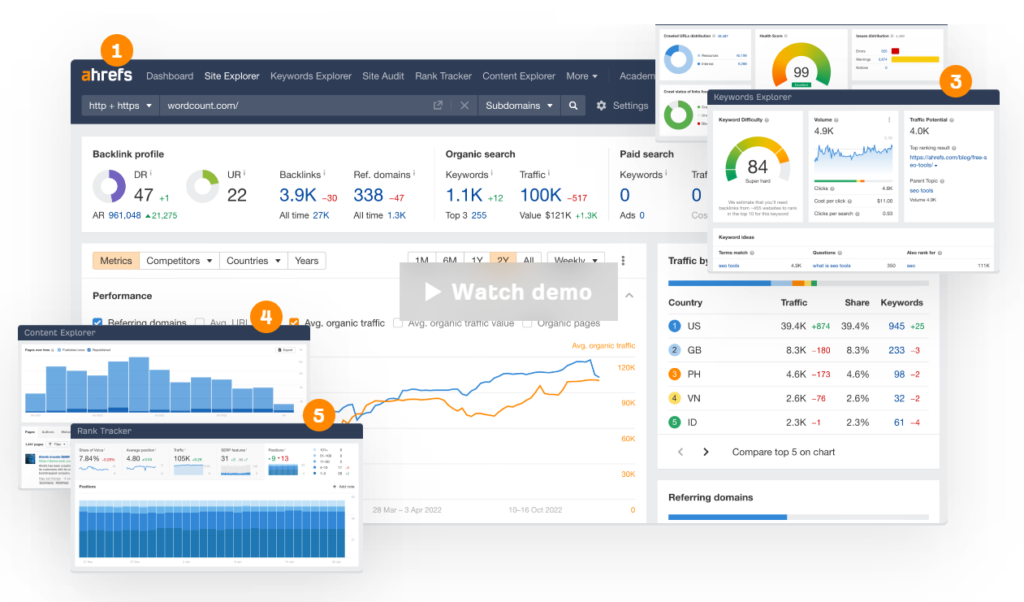
Source: https://ahrefs.com/
MAILCHIMP
MailChimp is a fantastic tool for email marketing and automation. Its primary purpose is to help you with newsletters and automated emails. With MailChimp, users have access to a wide range of professionally designed email templates. Moreover, it offers built-in email analytics and features that facilitate the management of your email lists. If you communicate with your customers using email, that’s one of your must-haves. Plus, Mailchimp can be integrated with many e-commerce platforms, such as Shopify.
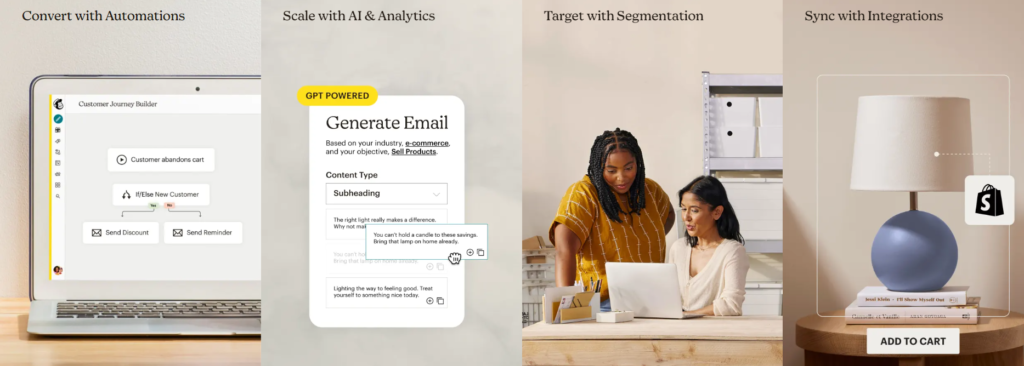
Source: https://mailchimp.com/?currency=CAD
HOOTSUITE
Hootsuite is a comprehensive online platform used for social media management. Hootsuite will help you:
- Schedule posts
- Monitor your SoMe accounts
- Stay in touch with customers (via direct messages).
Plus, Hootsuite provides users with thorough analytical insights, so you can find out more about your social media accounts and their performance.

Source: https://www.hootsuite.com/
Inventory management
Managing your store’s inventory can take a lot of time! Thankfully, there are tools that make this part of your work easier. Today, we want to show you one such tool:
VEEQO
It’s a cloud-based platform designed for inventory management. It offers online retailers the convenience of synchronizing all their sales channels within a single platform. With Veeqo, you can integrate your accounts on popular marketplaces and e-commerce platforms (such as Shopify, WooCommerce, OpenCart, and Magento). Veeqo helps you efficiently handle various tasks like managing orders, shipping packages to customers, and processing returns. All these functionalities are conveniently consolidated in one centralized dashboard.
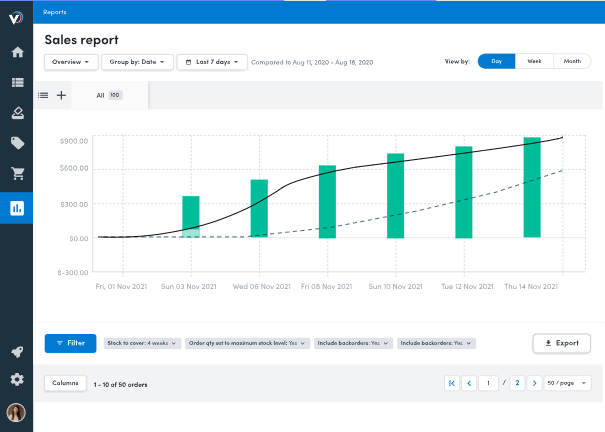
Source: https://www.veeqo.com/ecommerce-shipping-software
Customer service management
Communicating with customers and maintaining good relations with them surely takes a lot of effort. Thankfully, there are tools that help you with this task. Namely, one tool – Zendesk.
ZENDESK
Zendesk is a cloud-based platform streamlining customer service for online stores and other companies. It consolidates all customer interactions within a single hub. With this customer relationship tool, you can easily gather, manage, and respond to various customer support requests. And you have an in-depth view of the effectiveness of your customer-service-related efforts. Zendesk comes with very useful features, including:
- Call software
- Live chat
- And support the ticketing system
With Zendesk, you can save a lot of time on helping your customers and managing relations with them.
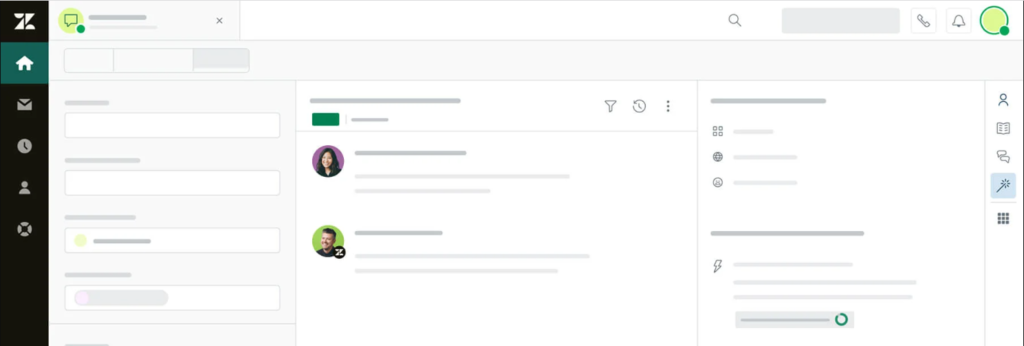
Source: https://www.zendesk.com/
Bookkeeping for e-commerce
Bench
This bookkeeping tool will help you manage all accounting-related tasks. And if you need additional help, there’s an expert bookkeeper willing to help you. The platform provides users with expert accounting advice as well as reporting features. As a result, your company stays tax-compliant, but you can also make more informed decisions when it comes to your company’s finances.

Source: https://bench.co/
Quickbooks
It’s another worthy bookkeeping platform for your store. Just like Bench, Quickbooks simplifies the management of essential accounting tasks such as balance sheets, expense tracking, inventory management, and invoicing. What’s great about Quickbooks is that it can automatically search for sales taxes across various jurisdictions and apply the right tax rates. Without a doubt, Quickbooks makes handling sales tax calculations easy.
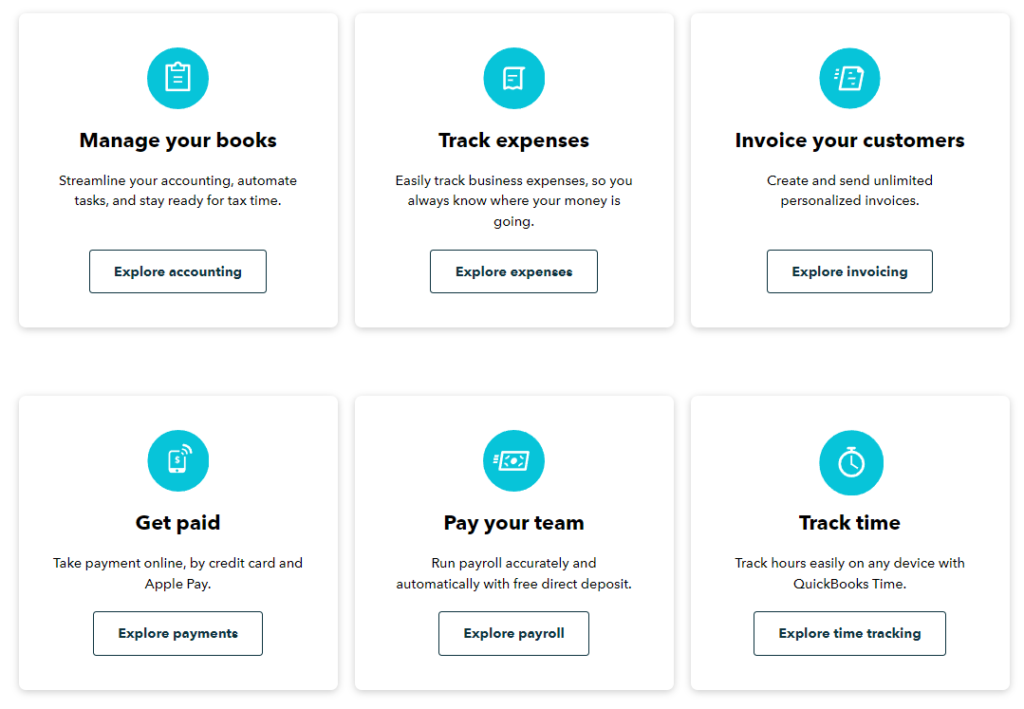
Source: https://quickbooks.intuit.com/ca/
Dealavo – a pricing tool for online stores
Yes, that’s us! We’ve created a comprehensive online pricing platform for online stores and manufacturers. With our help, you can monitor prices in various places (including marketplaces, Google Shopping, and other stores) and adjust your prices automatically to maintain the highest profitability of your store (this service is called dynamic pricing). Our algorithms can automate price changes for you; all you have to do is set predefined rules you want our algorithms to follow. As a result, you enjoy attractive, optimized prices all year round without the need to spend a lot of time tracking prices in other stores manually.
Manage your prices with our price monitoring tool!
The Best Outsourcing Tools for E-commerce Businesses – wrapping up
In this article, we mentioned 15 useful e-commerce outsourcing tools that will surely help you manage your online business. However, we advise you to be smart when it comes to outsourcing. Don’t do everything at once. It’s best to start with one or two tools that can make the biggest difference in your company. Once you get the hang of them, you can think of incorporating more tools. Otherwise, you won’t have enough time to master these tools. And keep in mind there are always some costs involved.
